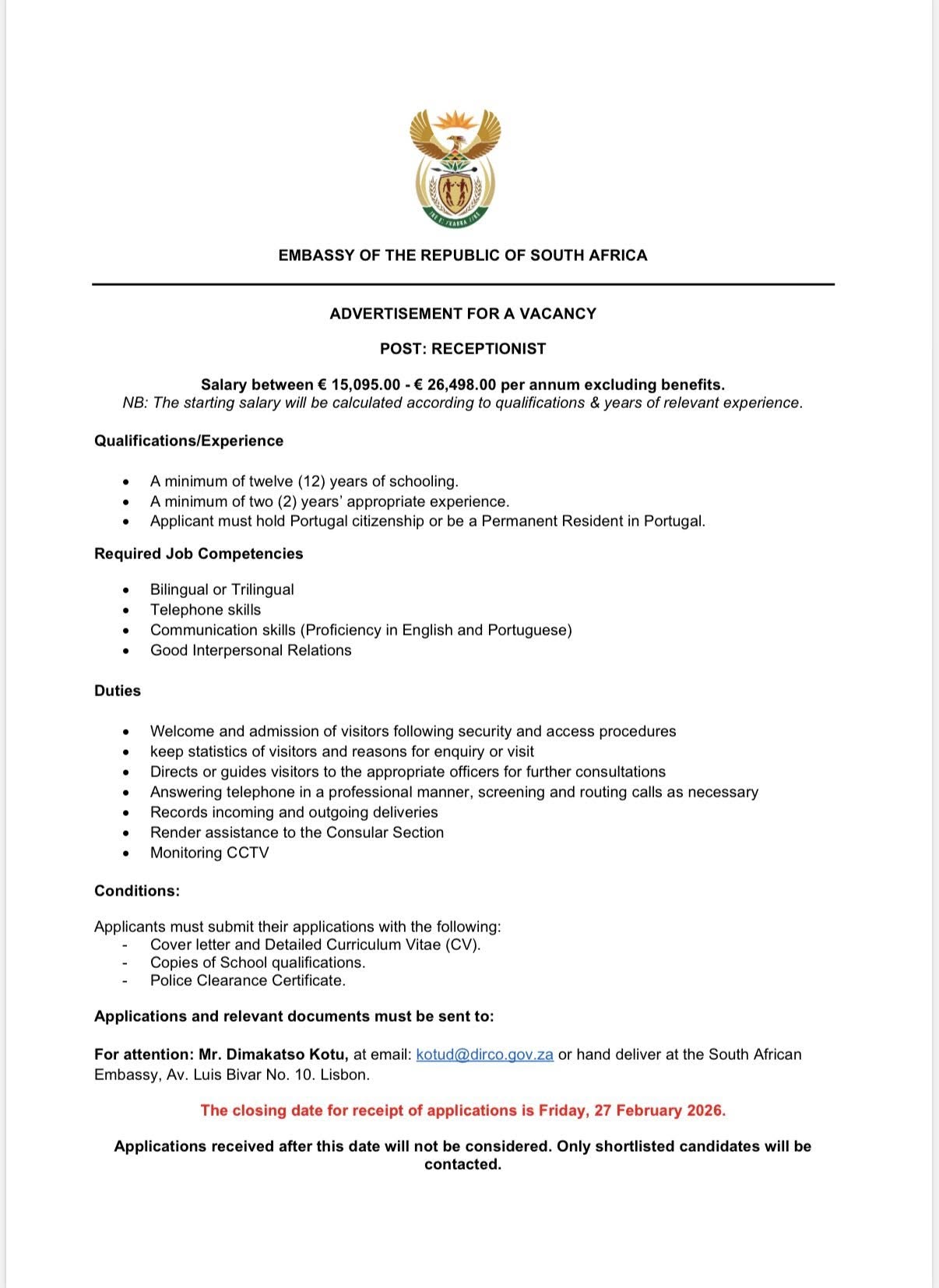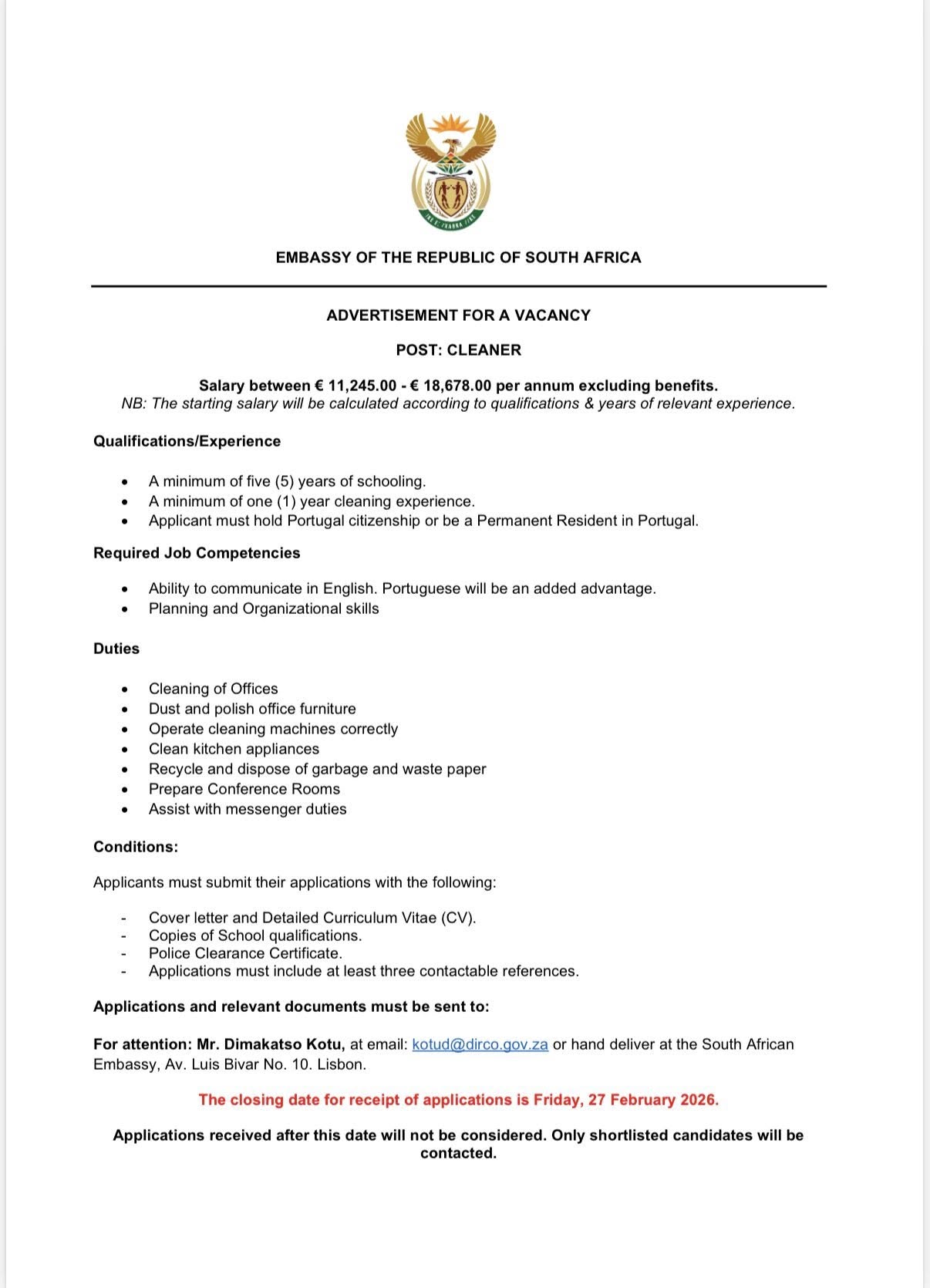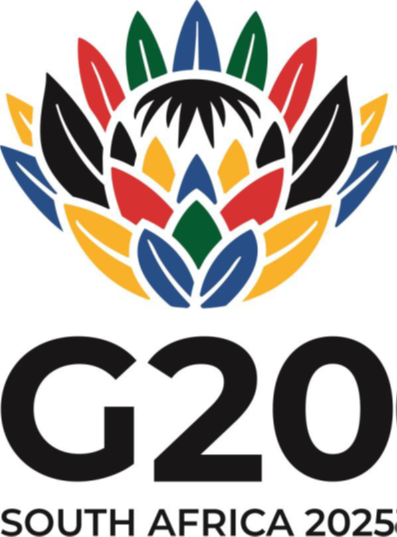JOB VACANCIES AT THE SOUTH AFRICAN EMBASSY
The Embassy is hiring 1 Receptionist and 1 Cleaner.
Please see below for more details:


The Embassy is hiring 1 Receptionist and 1 Cleaner.
Please see below for more details:


Please be informed that the Embassy will be closed over the Christmas holidays from 10H00 am on 24 December 2025 and reopens on 5 January 2026.
For emergencies only please call 964 151 989.
Please be informed that the Embassy's landline (T: 213 192 200) is temporarily out of order.
To contact the Embassy, please call 964 151 989 until further notice.
Thank you.

South Africa officially took over the Presidency of the Group of Twenty (G20) on 1 December 2024 from Brazil and holds the G20 Presidency until 30 November 2025 under the theme: “Solidarity, Equality, Sustainability”.
Solidarity requires that all nations work together, particularly during difficult times, be it an economic crisis, natural disaster, or pandemic. In an interconnected world, where the challenges faced by one nation affect all nations, solidarity is more important than ever.
By promoting Equality, we strive to ensure fair treatment and equal opportunities for all individuals and nations. We aim to break down divisions of economic status, gender, race, geography or any other characteristics. The disparities in wealth and development within and between countries is unjust and unsustainable.
Sustainability means using our resources—like water, energy, and land—in a smart way that does not harm the planet or compromise the ability of future generations to meet their own needs. We are seeking to strengthen and advance the international effort to achieve the Sustainable Development Goals by 2030.
The G20 comprises many of the world's largest developing and developed economies, It was established to tackle pressing global economic and financial issues. Decisions taken by the G20 have a direct impact on the lives of all members of the global community.
South Africa’s G20 Presidency will culminate in the hosting of the G20 Leaders’ Summit on 22 and 23 November 2025 in Johannesburg. This will be the first time an African country hosts such a prestigious gathering, which brings together global leaders and policymakers from major economies to discuss global economic stability, sustainable growth and development, The G20 has in recent years expanded its agenda to include some of the most challenges of our time, including around climate change, trade, debt, health, agriculture, food and energy security, natural disasters and anti-corruption.
The G20 Presidency has provided South Africa with an opportunity to ensure that the development priorities of the Global South, and Africa especially, find expression firmly, onto the agenda of the G20.
To read the Ubuntu News Flash, please click HERE. Highlights include:
MINISTER MAROPENE RAMOKGOPA LEADS SOUTH AFRICA DELEGATION AT G7 DEVELOPMENT MINISTERS’ MEETING (FOR TODAY PLEASE!!
SOUTH AFRICA CLINCHES WORLD FUTURE POLICY AWARD
SOUTH AFRICAN VET DR KELSEY SKINNER NOMINATED FOR GOLDEN STAR AWARD
UCT TO BRING THE WORLD ACADEMIC SUMMIT TO AFRICA FOR THE FIRST TIME
CAPE TOWN’S KITE FEST TURNS SKIES INTO GLOBAL MAGNET